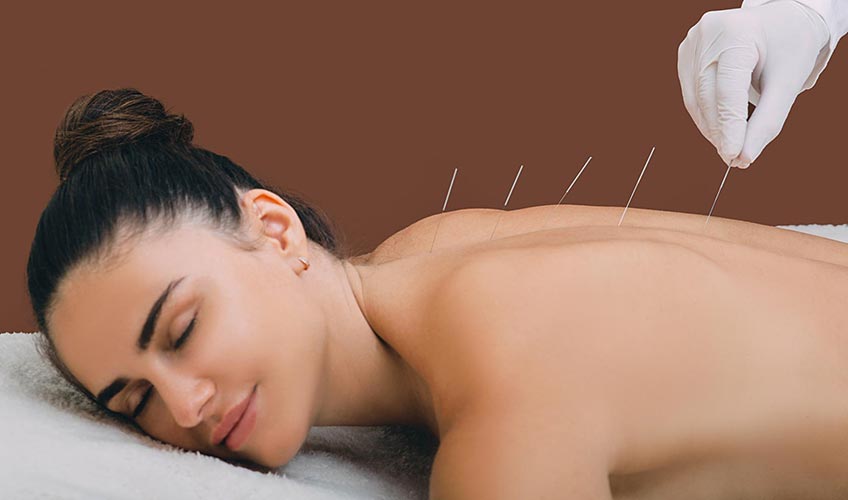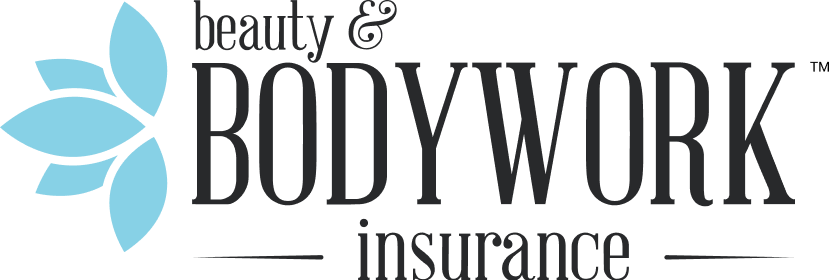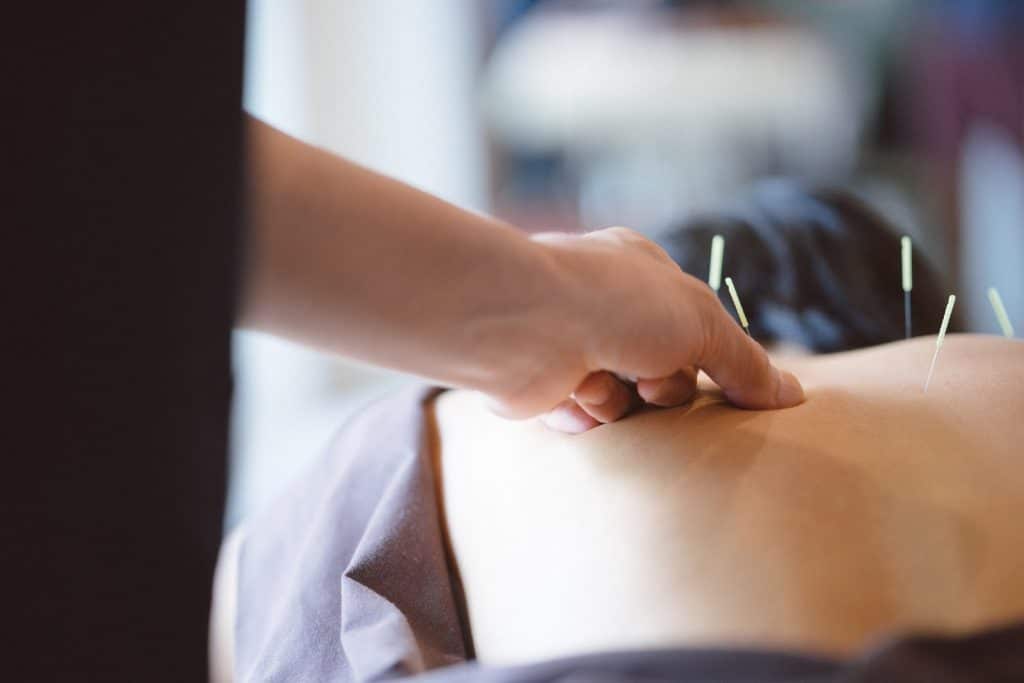Acupuncture was first described as a form of medicine in a text called The Yellow Emperor’s Classic of Internal Medicine, dating from about 100 BCE. In it, the emperor is supplied with information about traditional healing practices from his minister, Chhi-Po, who describes the concepts of energy (qi) and the meridians in the body through which energy flows.
Unfortunately, nowhere in the ancient text does Chhi-Po mention what an acupuncturist is supposed to do if one of their clients wants to sue them.
For that information, you can turn to more modern sources of information—like this blog post! Below, we can explain the benefits and use cases of acupuncture liability insurance in the hopes that your practice will last for another 2,000 years.
Benefits of Acupuncture Insurance (& Why You Need It)
As an acupuncturist, you’re in a unique field—and face some unique risks to your business and livelihood as a result. General and professional liability insurance offers you benefits you might not even know about, including:
Protection against lawsuits and client injury
This is probably the most important aspect of insurance for acupuncturists. Even if you take extreme precautions against injury, there are still risks involved. If a client were to:
- Contract an infection from an improperly sterilized needle
- Suffer lasting damage from improper needle placement
- Trip and fall in your studio space
You could be held liable for both medical bills and legal fees—which can easily total in the tens to hundreds of thousands of dollars. Acupuncture liability insurance (sometimes referred to as malpractice insurance) can pay these fees, protecting your personal assets while getting your client the compensation they are entitled to.
Coverage in case of false advertising claims
There is plenty of evidence of the positive effects acupuncture can have on a whole range of symptoms. But to the average person, acupuncture can still feel like a mysterious treatment with uncertain results. If one of your patient’s treatments are unsuccessful and you are accused of false advertising, insurance can cover your legal fees if they decide to bring you to court
False advertising insurance (aka personal and advertising injury coverage) can protect your business against claims arising if:
- You forget to honor an advertised service
- Unintentionally lie about a competitor or their services
- Accidentally misrepresent one of your own services

Compliance with the law and peace of mind
Most states require beauty and bodyworkers to have an insurance policy in place before they can legally practice—and this is especially important for acupuncturists. You should always check with your state’s licensing board about their insurance requirements to ensure you’re in compliance.
Insurance provides the simple peace of mind that, if something goes wrong with your practice, you, your business, and your clients are protected. This can leave you to do your best work without fear of “what if” situations. Plus, your clients might also feel more comfortable in your care knowing that they’re protected. In this way, insurance adds an extra layer of credibility and professionalism to your practice.
Who Needs Acupuncture Insurance?
All types of acupuncturists benefit from having insurance, regardless of their specific practice or location, including:
- Acupuncture Clinic Owners: Owners of acupuncture clinics need to cover not only their own practice but also any incidents that occur on their business premises.
- Mobile and Freelance Acupuncturists: Practitioners who travel to clients’ homes or work in multiple locations face different risks compared to those in a fixed clinic setting, making insurance essential.
- Acupuncture Students and Interns: Students learning acupuncture and interns working under supervision also need insurance. Educational institutions or training clinics often require students to have their own liability insurance.
Common Claims
In the U.S. there are over 10 million acupuncture treatments every year, and at least some of those treatments result in claims against the acupuncturist. And while every case is different, there are some common claims that anyone practicing acupuncture should be familiar with.
Professional negligence, malpractice, or injury
These claims occur when a patient believes an acupuncturist’s actions, or lack thereof, resulted in adverse effects.
>Example claim: Sarah is an Uber driver who sees an acupuncturist for her lower back pain. She leaves her session feeling good, but later develops an infection at one of the access sites and needs to take a course of antibiotics which diminish her night visions. Because of the infection and her treatment, she can’t drive for her job at night, resulting in lost wages. She decides to file a claim against her acupuncturist for the cost of her medical treatment and her lost wages.
Product liability
If you sell products in your professional capacity as an acupuncturist and one of your clients has an adverse reaction to them, they can bring a claim against you alleging you are in breach of your professional obligation.
>Example claim: Garrett sees an acupuncturist for his sciatica. He’s happy with his treatment, and afterward, he sees a muscle relaxing cream being sold by his acupuncturist in his studio. He buys the muscle relaxing cream and applies it to his upper thighs that night. Later he wakes up with a burning sensation and a visible reaction on his skin where the cream was applied. Because of the pain, he seeks medical treatment. Garrett later brings a claim against his acupuncturist holding him responsible for his medical bills.
Breach of confidentiality
Acupuncturists, like all healthcare providers, are obligated to maintain patient confidentiality. Unlawful disclosure of a patient’s medical information without their consent can lead to legal claims.
>Example claim: Roberto sees his acupuncturist every other week for migraines and neck tensions. After his sessions, his acupuncturist updates his medical chart. After one session, she forgets to put his chart away and leaves it on the front counter.
Later that day, a pharmaceutical sales rep visits her clinic and sees Roberto’s chart. That sales rep then contacts Roberto directly asking if he’d be interested in taking part in a clinical trial for a new anti-migraine drug, alleging that he received Roberto’s information from his acupuncturist. Roberto decides to bring a claim against his acupuncturist alleging breach of confidentiality.

BBI Insurance Coverage Details
Beauty and Bodywork offers professional liability or malpractice liability insurance to protect you from claims like the ones listed above. One of the best ways to increase your professional security is to purchase acupuncture liability insurance to shield you against third-party damage claims and lawsuits filed due to alleged negligence on your part. For only $43 per month, BBI can offer you:- Professional Liability Insurance Coverage ($3 million aggregate)
- Products and Completed Operations ($3 million aggregate) Each Occurrence ($2 million)
- Personal and Advertising Injury (Included)
- Damage to Premises Rented to You ($300,000)
Bottom Line
Acupuncture malpractice insurance is the best way to protect your business while providing you with the peace of mind you need to give your clients your best work. For one easy monthly payment, you can be covered in case of a wide range of accidents or potential problems with your practice. For more tips on providing the best service possible as an acupuncturist, check out some of our other blogs:







